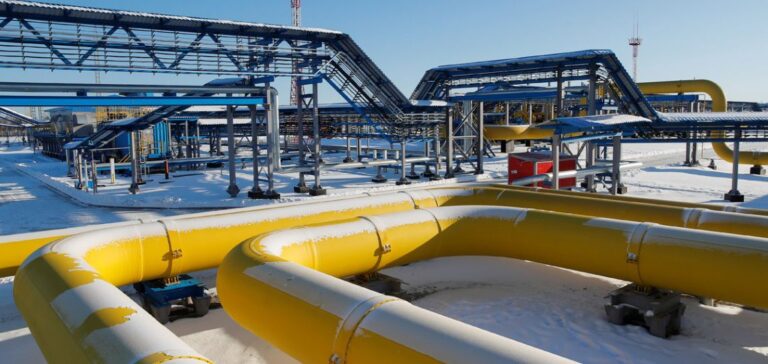With the Siberian Force 2 pipeline project, Moscow hopes to reduce its dependence on its European buyers, but risks aggravating the imbalance in its trade relations with Beijing, which has grown since the invasion of Ukraine, according to analysts. The project was celebrated by Vladimir Putin during the visit of his Chinese counterpart, Xi Jinping, to Moscow. The titanic Siberian Force 2 project would provide a vital commercial outlet for Russian gas, which has been hit by Western sanctions in retaliation for the invasion of Ukraine. The 2,600-kilometre pipeline, linking Siberia to China’s Xinjiang, is expected to carry 50 billion cubic metres of gas over time. But enthusiasm is more measured on the Chinese side, with Beijing avoiding any formal commitment to this project, whose timetable is still very vague.
According to experts, the Chinese wait-and-see attitude is indicative both of Beijing’s position of strength vis-à-vis Moscow, but also of its desire not to be overly dependent on Russia for its energy supplies. China is in no hurry to sign anything unless the proposal is favorable to it and is shaped by the conditions it has set, says Maria Shagina, an expert at the International Institute for Strategic Studies (IISS) in Berlin.
Russia, once the world’s largest exporter of liquefied natural gas (LNG), has seen its gas exports collapse in 2022 under Western sanctions. As the European Union seeks new sources of gas supplies, Russia has turned to other buyers, including China, to which it is already connected via the Siberian Force 1 pipeline. A record volume of 15.5 billion m3 passed through this pipeline last year. By 2022, China has overtaken Germany to become the largest buyer of Russian energy products. And in 2023, Beijing has already paid Moscow $12.2 billion for its coal, gas or oil, according to the Helsinki-based Clean Energy and Air Research Center.
But Russian energy sales to Asia remain modest compared to the 155 million m3 that Moscow exported to Europe before the war in Ukraine. Russia is desperately trying to send as much gas as possible to the East at a time when Europe is trying to reduce its dependence on Russian gas. However, the obstacles are not small. Russia’s existing pipeline network was primarily structured to serve the European market, and according to Jaime Concha, a gas market expert at Energy Intelligence, building an equivalent network for Asia would be time-consuming and expensive. This situation underlines “how few alternatives Russia has”.
China, for its part, has undertaken to diversify its gas supply sources and has signed several gas agreements with countries around the world. In November, China signed a 27-year, $60 billion deal with Qatar. According to Yan Qin, a coal specialist at Refinitiv, “China’s leaders are also learning from Europe about its over-reliance on Russian energy imports.”
The war in Ukraine has strengthened China’s position in energy negotiations with Russia. According to Maria Shagina of the IISS, Beijing has “come out the winner” of this situation by taking advantage of Moscow’s isolation to accelerate its purchases of Russian gas, oil and coal at “knock-down prices”. China is thus positioning itself as a key player in the global energy market. However, for Russia, dependence on the European market may become a long-term handicap, especially if relations with Europe deteriorate further. The search for new markets in Asia remains a major challenge for Russia.






















